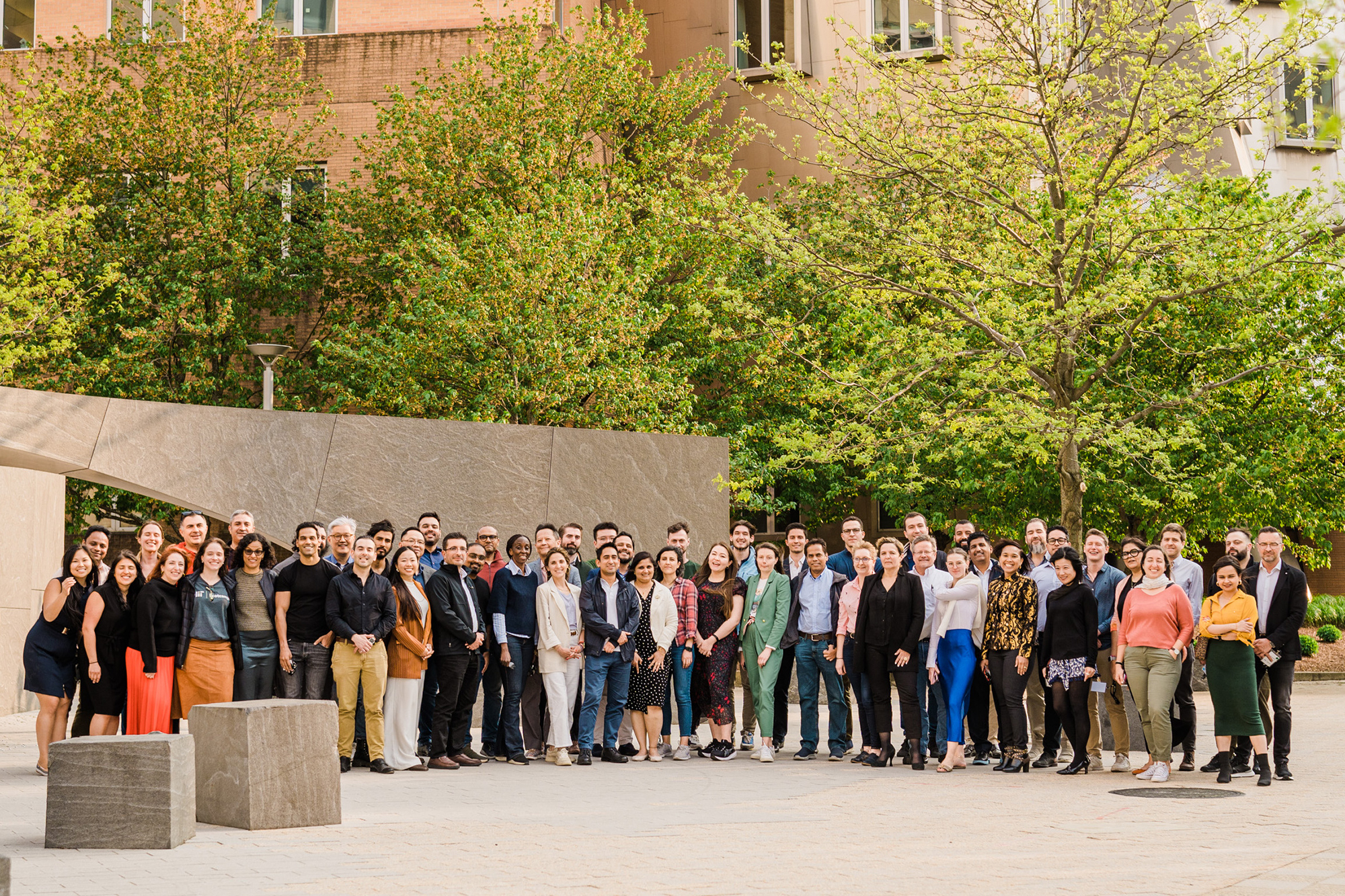
New Venture Advancement Program from MIT Bootcamps uses unique approach of peer-based learning and expert coaching.
Marisa Demers | MIT Open Learning
A new MIT Bootcamp brought 48 experienced and emerging innovators from six continents to campus as they learned how to scale their ventures. The Venture Advancement Program, which ended on May 12, was organized by MIT Open Learning and delivered a mix of lectures, workshops, and mentoring sessions from leading MIT academics and startup veterans.
“At Open Learning, our goal is to share knowledge with the world and empower people to act on their best ideas,” says Hanna Adeyema, director of MIT Bootcamps. “The boot camps create opportunities for people to learn about innovation, and receive highly personalized coaching.”
Since its inception in 2014, MIT Bootcamps graduates have raised more than $100 million in funding for their businesses and eight have been named to Forbes’ “30 Under 30” list. The original program, MIT Innovation Leadership Bootcamp, gives new and aspiring innovators a foundational understanding of how to launch a new venture or startup. Over five days, they identify a problem, engage in customer discovery, identify the most viable business model, and develop a fundraising plan.
These boot camps were held at MIT and locations across the globe until 2020, when the pandemic forced a move to an online programming. In late 2022, Adeyema and her team began to plan the first open-enrollment, in-person program since Covid. They took that opportunity to also think of new ways to support their graduates.
Hit the reset button
The team decided to create a new kind of boot camp, the Venture Advancement Program. It recognizes that founders must reassess their startups to continue growing or get support to take their innovations to the market.
“At some point, entrepreneurs will hit a plateau and will need to make a significant change to their business,” Adeyema says. “In some ways, they are in the same position as those who are just starting out. Whether it is a new product or service, they need to figure things out again, and we are here to work them through that process.”
Attendees in the Venture Advancement Program represented a wide range of industries, including education, artificial intelligence, and health and fitness. For instance, one attendee is developing an economically viable solution for on-demand delivery drivers in Paraguay to use zero-emissions vehicles, while another created a robotic prosthesis equipped with a machine-learning sensor to make amputees’ arm movements feel more natural and instinctive.
Lectures and workshops featured faculty from MIT Sloan School of Management and the Martin Trust Center for MIT Entrepreneurship. Interactive sessions by startup veterans and investors delved behind the scenes of launching and growing companies. Paul English, who sold his travel website Kayak for $1.8 billion in 2018, also addressed attendees, as did Snejina Zacharia, who raised nearly $130 million in venture capital funding for her startup Insurify, an online tool for comparison shopping of insurance products. David Cohen, whose Techstars accelerator program has invested in more than 3,000 startups including Uber, ClassPass, and PillPack, joined the program virtually. John Harthorne, venture capital investor at Two Lanterns and founder of zero-equity startup accelerator MassChallenge, shared practical insights on fundraising in the current economic environment.
Each evening, the boot campers worked independently and in teams to take lessons they learned earlier in the day and apply them to their own innovations or enterprises. To keep them accountable, they shared these assignments with coaches, who pressed them to turn their thoughts into action.
Doing this work, as well as participating in the workshops, lectures, and coaching sessions, meant that attendees spent more than 12 hours a day in the MIT Bootcamp. Participant education technology executive Ranjeeta Buti said she enjoyed the opportunity to immerse herself in new ideas.
“As a founder, you are often cooped up in your office, and you just do not get to see what is happening beyond your organization,” Buti says. “But the startup ecosystem is dynamic. The MIT Bootcamp experience keeps you up to date with the latest trends and insights.”
Buti left the boot camp with a broader understanding of what it means to be a leader and said she felt more empowered to make decisions.
Tapping Into collective brilliance
While MIT Bootcamps provide special access to MIT’s knowledge and people, the participants themselves are a critical component of the program. Boot campers are often ambitious and motivated, but also curious and giving. As a result, no one ever sits, eats, or works alone, says boot camper Ella Trinh, from Vietnam.
“It’s a very beautiful community,” says Trinh, who had previously joined Techstars and other accelerators and incubators. “Everyone is bringing a certain vibe and energy to the class. To me, that is very unique.”
Bhisham Sahi attended his first MIT Bootcamp in 2016 in Seoul, South Korea, and returned this year for his second. The owner of a marketing agency said the connection between boot campers lasts for years.
“If we ever need anything or are ever in doubt, we ask people from the Bootcamps community,” says Sahi, who communicates with graduates over Discord. “I come from a city called Chennai [formerly known as Madras] in India, and we organize reunions with boot campers who are nearby. Whenever someone visits my city, even if they are from a different cohort, we’ll meet for coffee and talk. The community is great and very helpful.”
MIT Bootcamps is currently accepting applications for its online MIT Innovation Leadership Bootcamp, which will be held from Oct. 2 to Dec. 8. More information about the program is available on the MIT Bootcamps website.
